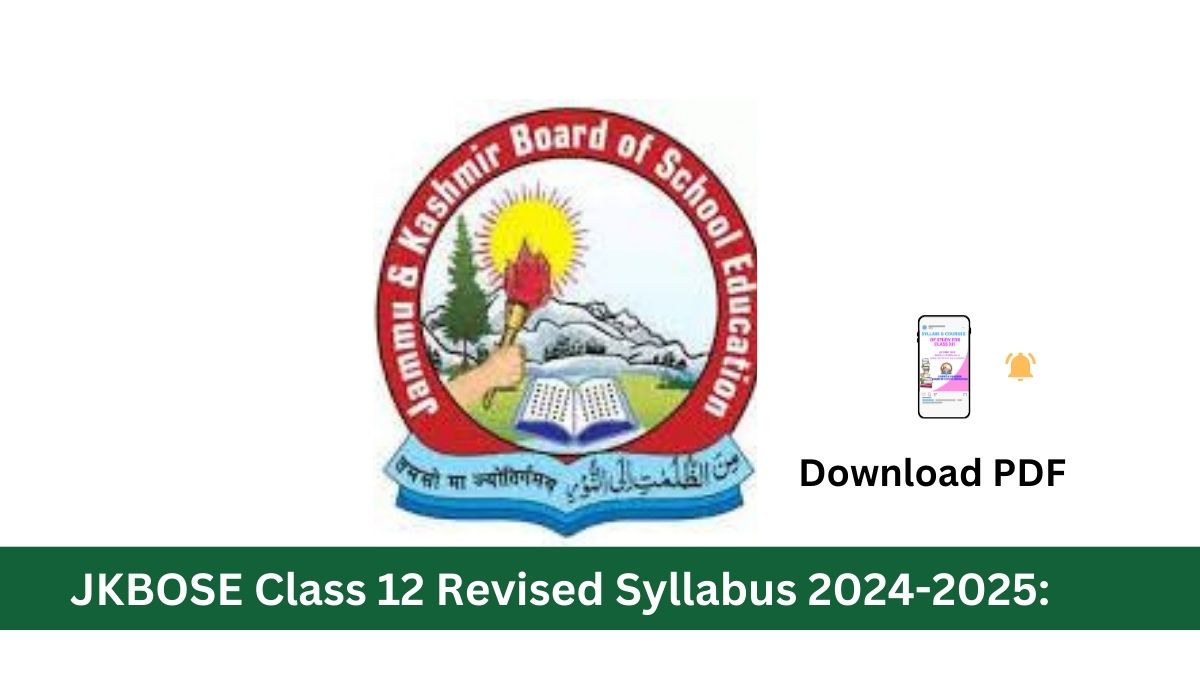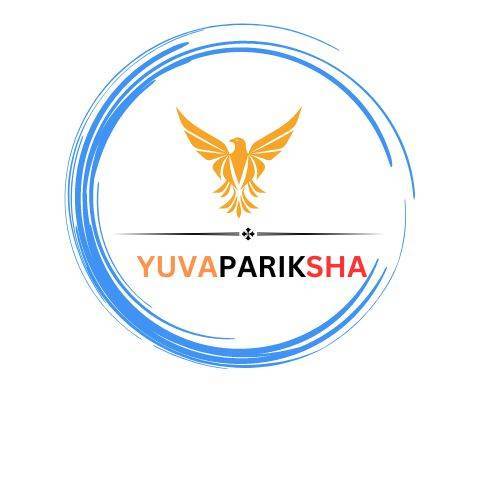The Jammu and Kashmir Board of School Education(JKBOSE)has released the revised syllabus for Class 12 for the academic year 2024-2025. This syllabus spans multiple disciplines, including the Humanities, Commerce, and Science streams. The revision focuses on streamlining content while maintaining a balanced approach to theory and practical learning. Below, we provide a detailed breakdown of key subjects and the important updates regarding exams and assessments.
Humanities Stream
This stream focuses on subjects like languages, social sciences, and philosophy. It offers a mix of theoretical knowledge with occasional practical work in subjects like Geography, Psychology, and Music.
Key Subjects and Mark Distribution
- General English
- Theory: 80 marks
- Internal Assessment: 20 marks
- The English syllabus includes reading comprehension, writing skills, and literature, divided into various sections that test students’ abilities in critical thinking, comprehension, and literary analysis.
- History
- Theory: 80 marks
- Project Work: 20 marks
The syllabus in History covers themes in Indian history, focusing on political, economic, and cultural changes from ancient to modern times. Key sections include Harappan civilization, medieval society, and colonial India. Project work allows students to delve deeper into topics such as the Treaties of Lahore and Amritsar, contributing to their understanding of Jammu and Kashmir’s history.
- Economics
- Theory: 80 marks
- Project: 20 marks
Divided into microeconomics and macroeconomics, students will study topics like market structures, consumer equilibrium, and national income aggregates. Project work is designed to encourage practical research on the economy of Jammu and Kashmir, focusing on sectors like health, education, and local industries.
JKBOSE Class 12 Download PDF
- Political Science
- Theory: 80 marks
- Project: 20 marks
Political Science discusses contemporary world politics and Indian political dynamics post-independence. Topics include the Cold War, global organizations, and regional aspirations, providing students with a global perspective while grounding their understanding in Indian democracy.
- Psychology
- Theory: 70 marks
- Practical: 30 marks
The curriculum covers individual differences, psychological disorders, and therapeutic approaches, with a strong emphasis on practical applications. Students will engage in case profiles and experiments to apply theoretical knowledge in real-life scenarios.
- Sociology
- Theory: 80 marks
- Practical: 20 marks
Sociology explores themes like demography, family structures, and social change. Students will conduct research projects, allowing them to investigate societal issues such as inequality and population dynamics in Jammu and Kashmir.
Science Stream
The science stream includes traditional subjects like Physics, Chemistry, and Biology, with a clear focus on both theoretical concepts and laboratory experiments.
Major Subjects and Examination Scheme
- Physics
- Theory: 70 marks
- Practical: 30 marks
Topics include electromagnetism, optics, and quantum physics. Practical assessments involve experiments such as studying electrical resistance, verifying the laws of reflection, and determining the focal length of lenses.
- Chemistry
- Theory: 70 marks
- Practical: 30 marks
Chemistry covers solutions, electrochemistry, and organic compounds. Practical work includes experiments like determining the rate of reaction between sodium thiosulphate and hydrochloric acid, and analyzing solutions to derive molecular masses.
- Biology
- Theory: 70 marks
- Practical: 30 marks
The syllabus emphasizes genetics, evolution, and environmental biology. Practical experiments include studying plant anatomy, observing microorganism cultures, and analyzing genetic inheritance through various lab techniques.
Commerce Stream
Commerce students focus on subjects like Accountancy, Business Studies, and Economics, preparing them for future roles in finance, management, and entrepreneurship.
You May Also Like!
- CUET UG 2025 Registration Closes Tonight: Last Chance to Apply for Admission to Top Universities
- Meet the Everlasting IPL OGs: The Players Who’ve Stayed from 2008 to 2025
- JKPSC KAS Prelims Admit Card 2025: Download Admit Card PDF | Documents to Carry to the Exam Center
- Aakash Chopra Reacts to BCCI’s New Rule Requiring Players to Travel Together for Matches and Practice
- FCI Salary Structure 2025 , Benefits, and Career Growth Opportunities
Core Subjects
- Accountancy
- Theory: 80 marks
- Practical: 20 marks
Students will learn about accounting standards, financial statements, and partnership accounts, with practical work based on real-world business scenarios.
- Business Studies
- Theory: 80 marks
- Project: 20 marks
Business Studies introduces students to business concepts, entrepreneurship, and management practices. The project work involves case studies, requiring students to analyze business trends and corporate strategies.
- Entrepreneurship
- Theory: 80 marks
- Practical: 20 marks
This subject encourages students to explore entrepreneurial skills, including business planning, market research, and product innovation. Practical projects involve creating business plans or studying local enterprises.
Examination Scheme Overview
Across all streams, the assessment format typically includes:
- Objective Questions: Multiple-choice questions to test knowledge.
- Short Answer Questions: Requiring brief but structured responses.
- Long Answer Questions: In-depth essays or explanations.
- Practical Work: Experiments, case studies, or project work, depending on the subject.
Internal Assessment and Practical Work
Practical work and internal assessments play a significant role in the overall evaluation, particularly in subjects like Geography, Psychology, and the Sciences. For example:
- Geography includes map work and thematic mapping.
- Psychology demands practical case studies and lab reports.
- Chemistry and Physics involve lab experiments with real-world applications.
Conclusion
The revised syllabus for Class 12 (2024-2025) reflects a balanced approach to theory and practice, encouraging students to apply their learning in practical settings. The curriculum aims to equip students with the knowledge and skills required to excel in higher education and professional fields, whether in the humanities, sciences, or commerce. With detailed internal and external assessments, students are encouraged to think critically, engage with real-world problems, and develop comprehensive subject mastery.
This summary provides a detailed breakdown of the revised syllabus, highlighting the importance of practical work, subject content, and examination schemes across different streams.



